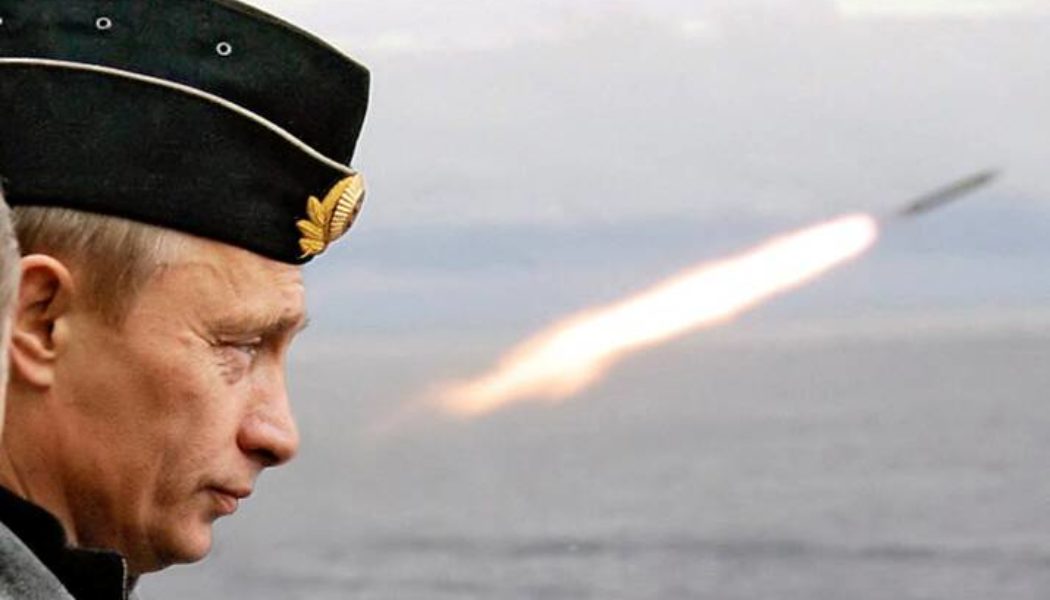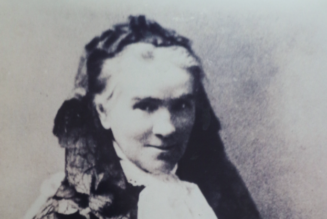As long as there has been a war in Ukraine, people have called for peace. Some propose a peace simply defined as a halt to fighting. They cite the suffering: More than 300,000 Ukrainian and Russian soldiers have been killed or wounded, thousands of civilians have been killed, and more than nine million Ukrainians have been displaced and have become refugees. Sirens, shortages and missiles continuously frighten Ukrainian civilians; trauma and grief pervade. And no end is in sight.
Running through Pope Francis’ more than 100 statements about the war is the leitmotif that war itself is the problem—absurd, a tragedy, a defeat for humanity. More coolly, political realists say that Ukraine does not stand a reasonable chance of rolling back the Russian invasion and that trying to do so risks nuclear war. And in the United States, some politicians call for scaling back a commitment to Ukraine that is expensive and, they say, not in our national interest. All of these voices put forth a minimal peace, prioritizing an end to fighting. The implication is that Ukraine should be coaxed or forced into negotiating.
An end to the war is not true peace if it means an end to Ukraine.
An end to the war is not true peace, though, if it means an end to Ukraine. Sts. Augustine and Thomas Aquinas held that the purpose of a just war is a just peace. Pope Paul VI echoed this point on the Day of Peace in 1972 with a statement titled “If You Want Peace, Work for Justice.”
A just peace would reverse Russia’s invasion of Ukraine in February 2022 and its bids to control Ukrainian territory since 2014—frontal assaults on the most basic tenet of international law, the integrity of sovereign states. Motivating this aggression is Mr. Putin’s version of peace, a “Pax Russica” that denies Ukraine’s existence as a nation. But recognizing this manifestly unjust peace, Pope Francis has amended his previous neutrality more and more and has condemned Russia’s aggression. Ukraine’s counteroffensive and its allies’ supplying of arms to it, then, are justified.
[Related: “Just war theory and Ukraine: Why military action against Russia is justifiable.”]
In a Christian ethic, though, a just peace involves more than defeating aggression. The just war ethic that dominates Christian thought on war and peace took shape during the Middle Ages, when the church adopted a concept of justice from Roman law: the constant will to render another his due. This concept came to dominate modern international law, where it means the rights of nations and people to be independent. Russia’s exit is thus “due” to Ukraine.
The notion of justice as rendering due, though, has occluded the original justice of the Bible, which means comprehensive right relationship, expressed by the Hebrew term sedeq and the Greek term dikaiosune. This justice is compatible with rights and law but is wider, also including virtues such as gift-giving and performing mercy. It culminates in God’s reconciliation of the world to himself in the cross and resurrection, which the Apostle Paul describes as God’s justice.
In politics, this justice entails not only the defeat of aggression but also practices that redress the wounds that violence and repression inflict. The past 50 years have seen a global wave of such practices, including truth commissions, international tribunals, reparations, apologies, memorials, new constitutions and local reconciliation forums. Together, these practices make up a peace of reconciliation.
Reconciliation is not relativism, nor is peacebuilding moral passivity. Aspiring to restore right relationship, just reconciliation recognizes the balance of injustices in the war.
A season of war may not seem to be a time to speak of reconciliation and peacebuilding. These words exude a symmetry of fault, suggesting that both sides must recognize their own wrongs and embrace each other. Meanwhile, Ukrainians are fighting and dying to secure the freedom of their assaulted nation. Reconciliation, though, is not relativism, nor is peacebuilding moral passivity. Aspiring to restore right relationship, just reconciliation recognizes the balance of injustices in the war.
Precedent for reconciliation after asymmetric injustices can be found in the Federal Republic of Germany, which has addressed the historically unmatched crimes of the Nazi regime through unmatched measures of repair: over 70 billion dollars of reparations payments, the trial of about 90,000 Nazi leaders and the conviction of about 6,500, apologies by chancellors and presidents, and a national commitment to remember these crimes in its public memorials and school curricula.
Such measures are still in the distant future for Russia and Ukraine. They require a leader other than and very different from Mr. Putin. Still, Ukraine has good reasons to give voice now to a peace of reconciliation, even if such a peace appears remote. It would sharpen Ukraine’s war aims, guide its strategy, cement alliances and, when the moment of settlement comes, help to mitigate rampant revenge and the casting of collective blame against Russians.
Practices of repair
What practices would contribute to a peace of reconciliation between Ukraine and Russia? The International Criminal Court’s recent indictment of Mr. Putin addresses the wound of impunity, as would a policy of lustration, whereby Russian planners and conductors of the war would be barred from office. Such punishment renders what is due and is integral to justice. Yet it leaves untended other wide wounds of war.
Nations from South Africa to Chile, and from Northern Ireland and Timor Leste, have gone further by placing a premium on truth in nurturing nascent democracy and embryonic peace. Truth disables dictators and spoilers, who rely upon lies to regain power and restart violence, and confers recognition on victims, whose suffering is likely to be forgotten or ignored. An international truth commission could tell the whole truth about Russia’s invasion and the war crimes committed by either side. Conveyors of truth also include schools, museums, monuments, and journalists and scholars who are enabled by freedom of speech and inquiry. While Mr. Putin represses this freedom in Russia, surrounding countries should advocate for this international human right and support Russian dissenters.
Reparative measures, including political apologies and financial reparations, have also multiplied in global politics. Both can bring repair beyond what is strictly owed by conferring recognition and elevating the dignity of victims. The examples of Canada and Australia facing up to crimes against their native peoples show that apologies by heads of state and reparations for victims may be conferred justly and be well received.
An international truth commission could tell the whole truth about Russia’s invasion and the war crimes committed by either side.
Forgiveness is the practice that has most distinguished Christian approaches to peace. It does not mean forgoing other practices. At a recent conference in Lviv, Ukraine, on the justice of war, one Ukrainian participant wisely asserted that any talk of forgiveness toward Russians must take an apophatic form, naming first what forgiveness is not: condoning injustice or renouncing a just war of defense, punishment, apology and reparations.
Yet forgiveness is different, departing from the justice of what is due. It is not owed but is rather a gift that imitates and is enabled by God’s grace. St. John Paul II taught “no justice without forgiveness” and lived out his message by forgiving the assassin who shot him in St. Peter’s Square in 1981. On a national level, Christians who have suffered violence have practiced forgiveness in South Africa, Rwanda, Uganda, Northern Ireland, the United States and elsewhere. Forgiveness contributes to a peace characterized by the justice of right relationship.
Forgiveness is the practice that has most distinguished Christian approaches to peace. It does not mean forgoing other practices.
Ukrainians may begin to give voice to the peace of reconciliation, but all of these practices will continue to seem distant as long as Ukrainians must fight a war to achieve a just peace of national independence and to avoid settling for a minimal peace that accepts Russian occupation.
How might reconciliation germinate? One precedent is the meetings in the immediate years after World War II between French and German politicians and civil society leaders under the auspices of Moral Re-Armament and the Geneva Circle. Held out of public view in Switzerland, these gatherings forged ties between erstwhile enemies that paved the way for the founding of European federalism (eventually the European Union) in 1950, an initiative envisioned by its founders as one of peace and reconciliation.
Meetings of this kind between Russians and Ukrainians would be arduous but over time might begin to bring about mutual acknowledgment of suffering, a common understanding of the truth about the war, repentance, forgiveness and proposals for building peace between their states. Though difficult, always achieved piecemeal and subject to breakdowns, a peace of reconciliation is possible, finds precedent in politics, and is amenable to breakthroughs.
[Read next: “Pope Francis’ secret Ukraine-Russia peace mission, explained.”]








